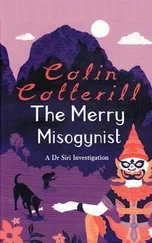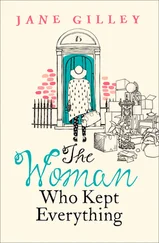Colin Cotterill - The Woman Who Wouldn't die
Здесь есть возможность читать онлайн «Colin Cotterill - The Woman Who Wouldn't die» весь текст электронной книги совершенно бесплатно (целиком полную версию без сокращений). В некоторых случаях можно слушать аудио, скачать через торрент в формате fb2 и присутствует краткое содержание. Жанр: Триллер, на английском языке. Описание произведения, (предисловие) а так же отзывы посетителей доступны на портале библиотеки ЛибКат.
- Название:The Woman Who Wouldn't die
- Автор:
- Жанр:
- Год:неизвестен
- ISBN:нет данных
- Рейтинг книги:3 / 5. Голосов: 1
-
Избранное:Добавить в избранное
- Отзывы:
-
Ваша оценка:
- 60
- 1
- 2
- 3
- 4
- 5
The Woman Who Wouldn't die: краткое содержание, описание и аннотация
Предлагаем к чтению аннотацию, описание, краткое содержание или предисловие (зависит от того, что написал сам автор книги «The Woman Who Wouldn't die»). Если вы не нашли необходимую информацию о книге — напишите в комментариях, мы постараемся отыскать её.
The Woman Who Wouldn't die — читать онлайн бесплатно полную книгу (весь текст) целиком
Ниже представлен текст книги, разбитый по страницам. Система сохранения места последней прочитанной страницы, позволяет с удобством читать онлайн бесплатно книгу «The Woman Who Wouldn't die», без необходимости каждый раз заново искать на чём Вы остановились. Поставьте закладку, и сможете в любой момент перейти на страницу, на которой закончили чтение.
Интервал:
Закладка:
She leaned on the balustrade. The regatta practice had begun. There were signs of improvement. The boats were colliding less frequently. There were fewer men and women overboard. One boat even appeared to have its oars in the air and back in the water in time to the cox’s drum. For a while. But the Uphill Rowing Club still splashed around like a drowning cricket. She could hear the sounds of the oars clattering together and the laughter of the old ladies.
She leaned over the rail to see whether she could catch sight of Ugly and his minions on the freshly cut grass below. But there were no dogs. Or perhaps there was one. In the shade of a Rhinoceros-Droppings tree sat Siri on one of their deckchairs. He was staring transfixed at the face of Madame Peung who sat opposite him with her trim old-lady bottom on the other.
My mother and I lived in that small laundry room for the next nine years. All my school years had been spent ironing. I considered myself bright. I’d learned to read and write Lao at the temple but there was nothing to read in my language. So I taught myself to read first French, then Vietnamese and I found a great assortment of books and magazines left behind by travellers. There was no mention of Laos in any of them. It made me feel even more that I was an insignificant person living in an insignificant country. I learned that the world worshipped money. Only the sons and daughters of the royals were sent overseas to study and they came back having laundered out all that dirty Laoness from their personalities. They were more French than Asian .
It saddened me that I had no value. Nothing to contribute. The Vietnamese boys were always trying to date me. I’d been flattered at first. They wore the best clothes, rode new bicycles. A couple even had motorcycles. But they weren’t wooing me so we could drink cafe au lait and discuss politics. I was Lao. I didn’t even make it on to the pecking order. I saw the Lao girls give in to them. They all needed somebody to love them in whatever way was available. But they couldn’t have me. They tried but I was handy with a knife even then. Nobody messed with me. I’d inherited my father’s fire. My mother told me stories about him. How he marched up to the administrator’s office in his handmade straw sandals and announced that there would be no taxes paid that season .
‘What do we get for our taxes?’ he’d asked the government interpreter. ‘We have no roads. No clean water. No help when the crops fail. You take our men for slave labour to grow your coffee and mine our gems. And then you have the gall to tax us for the privilege.’
My father returned from that first meeting with fifty lashes across his back. That night he sat shirtless at a bonfire and one by one the men walked passed him and spat raw rice liquor into his wounds. They drank through the night heaping curses upon the white gods. By sunlight they were prepared for their first riot. The revolution spread through the hills. The French called in more soldiers. My father recruited more fighters. And for three years they matched the French arms with Lao grit .
He told his men ,
‘Individually, the French are clerks and bookkeepers. Weedy men resentful at being posted to this sweaty country with its mosquitoes and biting centipedes and godless brown people. But you put enough clerks and bookkeepers together and arm them and they think they can do whatever they want. One of us is worth ten of them. Twenty.’
But they did put enough clerks and bookkeepers together and they put down the riots and then there were just the women and children. And what could we do against the might of a great European nation?
The official from the department of Housing was short. Not legally a midget but unlikely to reach 140 centimetres in his remaining lifetime. He stood in the open doorway of the hotel room looking up at the tall Frenchman.
‘ Oui? ’ said the Frenchman.
Comrade Koomki introduced himself in Lao, then broken Vietnamese, then Russian. The Frenchman only knew four words of Russian.
‘I don’t speak Russian.’
Comrade Koomki shook his head, looked at his shoes, held up one index finger and ran off along the corridor. Ten minutes later there was another knock at Barnard’s door. This time there were two visitors. Comrade Koomki had returned with a dirty man in gloves. He was barefooted and wore a large straw hat.
‘Who are you?’ asked Barnard.
‘I am the gardener,’ the man replied in very good French. ‘My name is Apsara.’
‘Why are you here?’
‘Because this man asked me to come.’
‘And who is he?’
‘He would prefer not to say.’
‘Why do you speak French?’
‘In the old regime I was the night manager here. I’m being retrained from the grass roots up. I shall return.’
‘So?’
The gardener and Comrade Koomki spoke together in Lao.
‘The comrade’s cousin sells spices at the morning market. She heard you asking for Daeng Keopakam. Nobody there knew that name. But the comrade here remembered it. The lady in question has since married and has a new surname. He knows where they live.’
‘And when so many comrades in so many government departments refuse to give me this information, why is this nameless comrade prepared to deal with me?’
More Lao.
‘The comrade wants to know whether you intend to do any harm.’
‘And do you recommend I give him a positive or a negative response to this?’
‘The comrade has just lost his position due to them. He is keen to have revenge on your Madame Daeng and her husband. He would be pleased if some ill fortune were to befall them. He would also like a more fiscal reward.’
‘Then tell him I can promise both riches and ill fortune in large helpings.’
‘Then I believe you two can do business.’
Nurse Dtui had been through a rough day at the chalk face. Her first-year nurses fell into a giggling fit every time Dtui poked her ruler anywhere near the midriff of the plaster dummy of a man with all his organs visible. The spinal injuries teacher was off with malaria so Dtui had to teach back-to-back classes all day. And, not for the first time, the administrators had announced that, due to problems at the treasury, the staff would be receiving its salary in vermicelli rice noodles this month. Even without the rapidly growing daughter strapped to her back, Dtui would have creaked under the weight of responsibility. There was a Lao proverb that called teachers the engineers of the soul and Professor Dtui was starting to wonder whether she had the right nuts and bolts for the job.
She arrived at the police dormitory at nine p.m. The lights were on in every room but hers. Why had she chosen the only conscientious police inspector in Vientiane? She walked past a slim man who was sitting cross-legged on top of the bicycle shed. From a distance he’d looked like some geometrical diagram. As it would have been foolish for a robber to lie in wait in front of the police dormitory, she assumed he was an off-duty policeman and passed him quite calmly.
‘You Dtui?’ he asked.
‘Depends,’ she said.
‘I’ve got a letter for Dtui from her Auntie Daeng.’
‘You could have slid it under the door,’ she said.
‘Then I wouldn’t have got my other half, would I?’
‘Half of what?’
‘The five US greenbacks she promised me.’
‘Then it’s really not your night, is it.’
She fumbled for her door key.
‘It might be important,’ he said.
‘Then I’ll find that out when she comes back to Vientiane.’
‘Come on. I’m a poor boat pilot. She promised.’
Dtui turned to him and put her fists on her hips.
Читать дальшеИнтервал:
Закладка:
Похожие книги на «The Woman Who Wouldn't die»
Представляем Вашему вниманию похожие книги на «The Woman Who Wouldn't die» списком для выбора. Мы отобрали схожую по названию и смыслу литературу в надежде предоставить читателям больше вариантов отыскать новые, интересные, ещё непрочитанные произведения.
Обсуждение, отзывы о книге «The Woman Who Wouldn't die» и просто собственные мнения читателей. Оставьте ваши комментарии, напишите, что Вы думаете о произведении, его смысле или главных героях. Укажите что конкретно понравилось, а что нет, и почему Вы так считаете.












